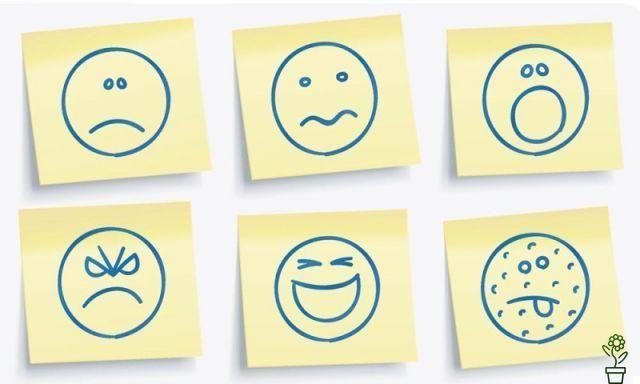
Emotional intelligence is important, we all know that. And we all want to develop it. We know that if we are aware of our emotions, if we understand their cause and are able to catch the first subtle signals before we lose control, we will be able to manage them better and even use them to our advantage.
But often we don't know where to start or we can feel overwhelmed by all the changes we face. As a result, we do absolutely nothing and get stuck in our comfort zone. Therefore, it is important to have the courage to take the first step, however small it may be. In fact, the first step will not take you where you want, but will allow you to get out of where you are.
The basic skills of Emotional Intelligence
First, it is important to know that emotional intelligence is a complex concept that involves several skills:
- Emotional self-awareness. Understanding how our emotions and feelings affect our behaviors, attitudes, expectations and decisions.
- Emotional self-regulation. Reflect and manage our feelings and emotions, so as not to act rashly and impulsively. It doesn't mean ignoring emotions in the decision-making process, but giving them due weight, no more, no less.
- Self-motivation. Being able to direct emotions towards our goals, using them in our favor to keep us motivated and overcome the obstacles we encounter along the way. It involves, in some ways, staying positive and developing a proactive attitude towards life.
- Empathy. It does not only mean understanding the opinions of others and their decisions, but also sharing their emotions and being able to capture their emotional states from small extra-verbal cues, so that a closer bond can be established.
As you can imagine, developing emotional intelligence takes a lot of work. But there is a small "shortcut", a good starting point that will allow you to give momentum to this skill. This is a very trivial secret: take a break.
Easy in theory, difficult in practice
Taking a break, even for just a few seconds, can make a big difference in our reactions. It is a very simple tip, but difficult to put into practice. In fact, even people who have advanced further in emotional self-control may find it difficult to inhibit their reactions after a bad day, when they haven't rested enough, or if they have a weak spot.
But the benefits of pausing before reacting are enormous. In fact, those fractions of a second are more than enough to allow the rational brain to take control, so that it can think before reacting. This will prevent a full blown emotional hijacking that you may regret.
The interesting thing is that taking a break is not only a good strategy for dealing with situations that make you nervous, upset or angry, but also what seemingly seem like good opportunities. In fact, responding positively and quickly, letting yourself be carried away by the cheer or excitement of the moment, is one of the worst mistakes we make often and in different situations, from taking advantage of that discount that looks so good when we are in the store, and then it turns out not to be, to say yes to a project that we are unable to carry out just because we are flattered by the proposal.
Taking a break will allow you to focus on the problem. Consider that the first emotional reaction will always be centered on you, on how you feel about the situation you are in. In fact, it is a very primitive analysis mechanism that occurs in our emotional brain, through which we evaluate in a few milliseconds how a certain situation makes us feel. However, the break will allow us to move to the next level and give a reasoned response, more centered in the others, more neutral and, probably, more conciliatory.
The 3 essential steps to take a break
When you have to deal with any situation, one that worries you or one that excites you, it is best that you take a little pause before deciding or reacting.
1. Recognize. The first step is to learn to recognize these internal signals that your emotions are taking over. Each person is different, so he must necessarily learn to distinguish those little clues that his body sends him. For example, for some, anger is like a flame rising in their chest, while joy is a feeling that pervades them.
2. Stop. Resist the urge to act immediately, to say the first thing that comes to mind. Be aware of this urge and make a decision to hold it back. At the same time you decide to hold the impulse, you are giving up control to the rational brain.
3. Breathe. To hold the urge, it will be helpful to take a long, deep breath. Breathe in the air through your nose, hold it for a few seconds, focus on the movement of your chest and abdomen, and then release it as slowly as possible through your mouth.
At this point, you are probably ready to answer. If not, you will have at least realized that this is not the best time to act or make a decision. In this case, going for a walk or engaging in any other activity, establishing a physical distance and walking to clear your mind will help you react better.


























